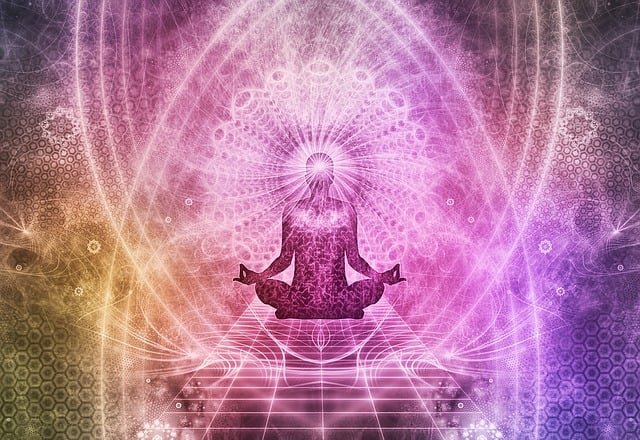Por qué creo que el yoga es importante / Why I believe yoga is important (SPA/ENG)

Feliz inicio de año querido lector. En este post, en este rincón del autoconocimiento, quería hacerle un espacio al yoga y sobre por qué considero que es importante como uno de los hitos científicos más importantes de la humanidad, sin adornos, ni propagandas, sino una investigación clara y comprometida.
Desde luego, todos creemos saber qué es el yoga debido a que se ha popularizado su enfoque físico en el cuerpo. Todos también tenemos aunque sea una idea inicial de que se usa para estar saludables físicamente a través de ciertas posturas, confusas o no, que parecen poner a prueba nuestra elasticidad. Sin embargo, ese nunca fue el propósito inicial del yoga. Así es como quiero hablarte de su enorme bagaje científico y cultural.

Yoga
Yoga significa unión. Desde ahí podemos sacar unas cuantas conclusiones respecto a su propósito y por qué es importante hoy día rescatarlo para la humanidad que parece todo lo contrario a eso, separado de su mente, su cuerpo, la naturaleza, lo que le está ocasionando un montón de problemas.
Su historia va hacia un primer yogi que es conocido como Adiyogi, quien luego, se dice, sería inmortalizado como Shiva, así como Hermes Trismegisto sería inmortalizado en egipto como Thot y en Grecia como Hermes. Así comenzamos por comprender lo importante que fue este personaje para su cultura.
Él, comenzó el descubrimiento interno del ser humano a partir de ciertos ejercicios físicos y no necesariamente físicos. Ese es, curiosamente, todo el propósito del yoga y por qué lo uno intrincadamente con la ciencia, porque es, diría yo, la glorificación de la curiosidad humana: A través de la meditación uno podría adquirir y ampliar la percepción del cuerpo y la mente (Y mucho más). Mejorar los sentidos y a través de ellos conectar con la realidad para comprenderla.
A pesar de lo que hemos entendido de este lado del mundo, no solo existe un yoga físico, que es al que estamos acostumbrados sino yoga que se enfoca en las distintas esferas del ser, como la mente y las emociones también, de ahí que hoy día muchas meditaciónes y ejercicios de respiración estén dando resultados comprobables a nivel científico-tecnológico. Si no te interesa hacerte un nudo con tus articulaciones, puedes simplemente sentarte y hacer tu autoexploración con los sentidos. Ejercicios muy simples, de hace más de miles de años de antiguedad. Todo a través de la curiosidad.
Usando sus percepciones desarrolladas, trataron de crear un lenguaje, usando sílabas y entonaciones que realmente les hicieran sentir de una u otra manera de acuerdo a lo que quisieran lograr para generar un cambio en sí mismos o en la realidad. Dada la metodología diría que se trata de una ciencia poderosa que a mí personalmente me ha dado grandes resultados. Encima, el yoga está por encima de las barreras ideológicas porque, aunque tiene un lado mitológico, no es obligante para participar en sus práticas y su fin, que es la experiencia de la iluminación, no necesita ser forzada por nadie porque tú puedes llegar a ella a través de los métodos adecuados.

La verdadera meditación
Pero con la popularización del yoga también vienen los inconvenientes, aunque diría, pasa con todo. El buscador tiene que navegar a través de aquellas fuentes que buscan apalancarse del yoga para simplemente obtener popularidad y lucrar de ella. Aunque creo que es lo que pasa con todo lo que se hace mainstream, el problema es que como el yoga fue meticulosamente creado para que cada movimiento y concentración cumpliese una función, cualquier añadido propagandístico podría afectar su efectividad. Otro motivo por el cual la comparo con una ciencia.
En Youtube hay muchos Gurus de todo tipo, unos que dicen que ser propiamente de la India. Así que en eso tenemos otra barrera cultural porque hablan en otro contexto geográfico. Por mi parte, el único método que tengo para dinstinguir es cuan en serio se toma el gurú a sí mismo.
En general trato de evitar a aquellos que tienen una percepción muy grandiosa de sí mismos y que no permiten bajo ninguna circunstancia que se les cuestione. Esto, he aprendido, es un síntoma de narcicismo. Pero si es un maestro que te dice, incluso riendo, que no le creas si no quieres, y que juzgues con tu propia experiencia al poner ciertas cosas en práctica, entonces es por lo menos alguien con buenas intenciones.

Cabe preguntarse entonces, ¿Meditar es "meditar"? ¿O es otra cosa? Si un yogi se sentaba a enfocarse en su respiración, seguramente era para obtener un resultado, pero tengo entendido por la opinión de un monje que es psiquiatra certificado de Harvard, que los monjes que van a meditar al Himalaya no están todo el día enfocándose en su respiración. El objeto fundamental de la meditación es la autoexploración. Cuando ellos cantan el AUM, utilizan la vibración del sonido en sus propios cuerpos para preguntarse el origen de sus propias sensaciones. Y de algún modo se han dado cuenta que la respuesta es infinita. Por así decirlo, usando la sola percepción y afinándola a punta de curiosidad humana, han llegado establecer que no todo está simplemente en el cerebro, sino que hay otras esferas de la experiencia humana.
Desde luego, no voy a hablar de algo de lo que no he experimentado personalmente ni que la ciencia todavía haya comprobado, cosa que puede tomar bastante tiempo, pero sabiendo que la meditación es en realidad juego y curiosidad puedes enfrentarla con una mentalidad muy diferente. Se dice que Adiyogi descubrió 112 meditaciones diferentes para que cualquier humano pudiera descubrir la riqueza de la experiencia humana.
Desde luego, no es posible explicar toda la práctica en un post. Te invito a explorarla seriamente por su practicalidad y eficiencia. Ya sabes como soy, querido lector. No te haría perder el tiempo por nada. Por lo menos a mí me parece, que las personas que de esa época, eran científicos de verdad. ¿A ti que te parece?




Happy start of the year dear reader. In this post, in this corner of self-knowledge, I wanted to make a space for yoga and why I consider it important as one of the most important scientific milestones of humanity, without embellishments or propaganda, but rather a clear and committed investigation.
Of course, we all think we know what yoga is because its physical focus on the body has become popular. We all also have at least an initial idea that it is used to be physically healthy through certain postures, confusing or not, that seem to test our elasticity. However, that was never the initial purpose of yoga. This is how I want to talk to you about its enormous scientific and cultural background.

Yoga
Yoga means union. From there we can draw a few conclusions regarding its purpose and why it is important today to rescue it for humanity, which seems the complete opposite of that, separated from its mind, its body, nature, which is causing a lot of problems.
Its story goes to a first yogi who is known as Adiyogi, who later, it is said, would be immortalized as Shiva, just as Hermes Trismegistus would be immortalized in Egypt as Thoth and in Greece as Hermes. Thus we begin by understanding how important this character was for his culture.
He began the internal discovery of the human being from certain physical and not necessarily physical exercises. That is, interestingly, the whole purpose of yoga and why I intricately link it with science, because it is, I would say, the glorification of human curiosity: Through meditation one could acquire and expand insight into the body and mind (And much more). Improve the senses and through them connect with reality to understand it.
Despite what we have understood from this side of the world, there is not only physical yoga, which is what we are used to, but yoga that focuses on the different spheres of the being, such as the mind and emotions as well, hence today many meditations and breathing exercises are giving verifiable results at a scientific-technological level. If you are not interested in getting your joints in knots, you can simply sit and do your self-exploration with your senses. Very simple exercises, from more than thousands of years ago. All through curiosity.
Using their developed perceptions, they tried to create a language, using syllables and intonations that really made them feel one way or another according to what they wanted to achieve to generate a change in themselves or in reality. Given the methodology, I would say that it is a powerful science that has given me great results personally. Furthermore, yoga is above ideological barriers because, although it has a mythological side, it is not obligatory to participate in its practices and its goal, which is the experience of enlightenment, does not need to be forced by anyone because you can reach it through appropriate methods.

True meditation
But with the popularization of yoga also come drawbacks, although I would say, it happens with everything. The searcher has to navigate through those sources that seek to leverage yoga to simply obtain popularity and profit from it. Although I think this is what happens with everything that becomes mainstream, the problem is that since yoga was meticulously created so that each movement and concentration fulfilled a function, any propaganda addition could affect its effectiveness. Another reason why I compare it to a science.
On YouTube there are many Gurus of all kinds, some who say they are specifically from India. So in that we have another cultural barrier because they speak in another geographical context. For my part, the only way I can tell is how seriously the guru takes himself.
In general I try to avoid those who have a very grandiose perception of themselves and who do not allow themselves to be questioned under any circumstances. This, I have learned, is a symptom of narcissism. But if he is a teacher who tells you, even laughing, not to believe him if you don't want to, and to judge with your own experience when putting certain things into practice, then he is at least someone with good intentions.

It is worth asking then, is meditating "meditating"? Or is it something else? If a yogi sat down to focus on his breathing, it was surely to obtain a result, but I understand from the opinion of a monk who is a certified psychiatrist from Harvard, that monks who go to meditate in the Himalayas do not spend all day focusing on your breathing. The fundamental object of meditation is self-exploration. When they chant the AUM, they use the vibration of sound in their own bodies to question the origin of their own sensations. And somehow they have realized that the answer is infinite. So to speak, using perception alone and honing it with human curiosity, they have managed to establish that not everything is simply in the brain, but that there are other spheres of human experience.
I'm certainly not going to talk about something that I haven't personally experienced or that science hasn't yet proven, which can take a long time, but knowing that meditation is actually play and curiosity you can approach it with a very different mindset. It is said that Adiyogi discovered 112 different meditations so that any human could discover the richness of the human experience.
Of course, it is not possible to explain the entire practice in one post. I invite you to seriously explore it for its practicality and efficiency. You know how I am, dear reader, I wouldn't waste your time just for anything. At least it seems to me that the people from that time were real scientists. What do you think?



Congratulations @selftheist! You have completed the following achievement on the Hive blockchain And have been rewarded with New badge(s)
Your next target is to reach 25000 upvotes.
You can view your badges on your board and compare yourself to others in the Ranking
If you no longer want to receive notifications, reply to this comment with the word
STOPCheck out our last posts: